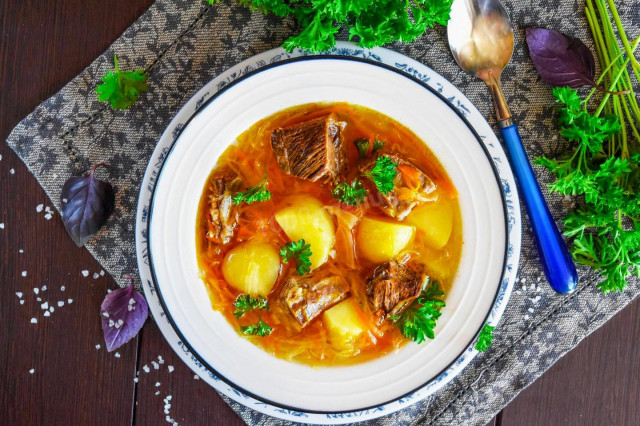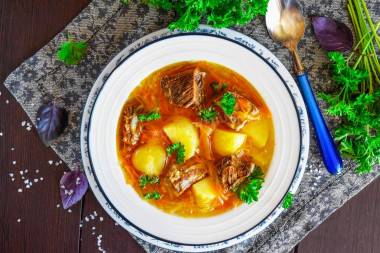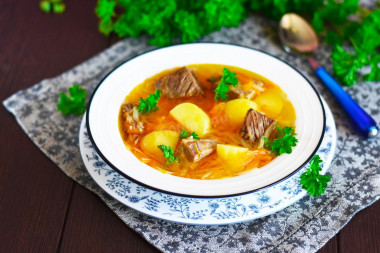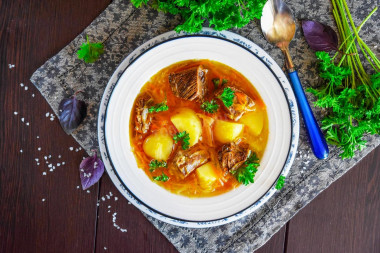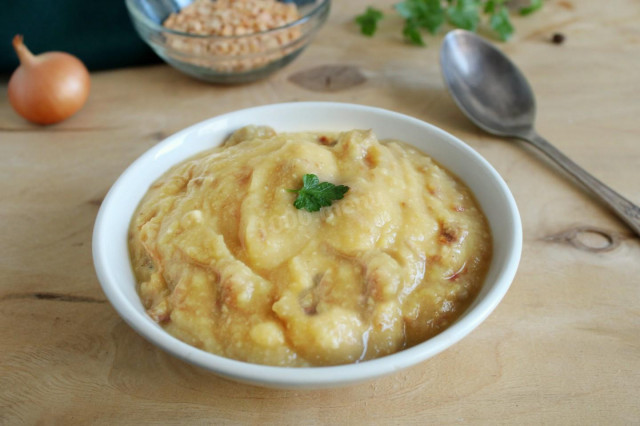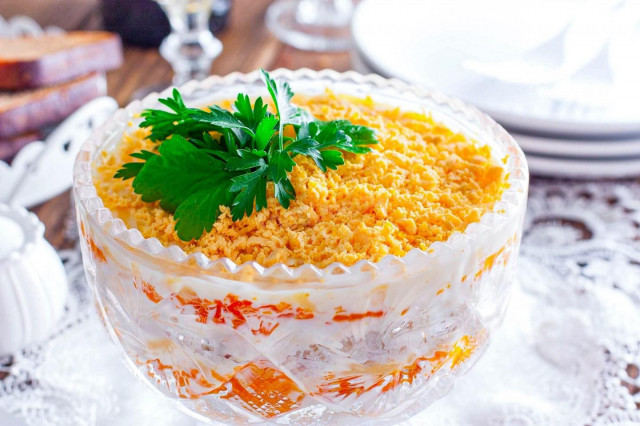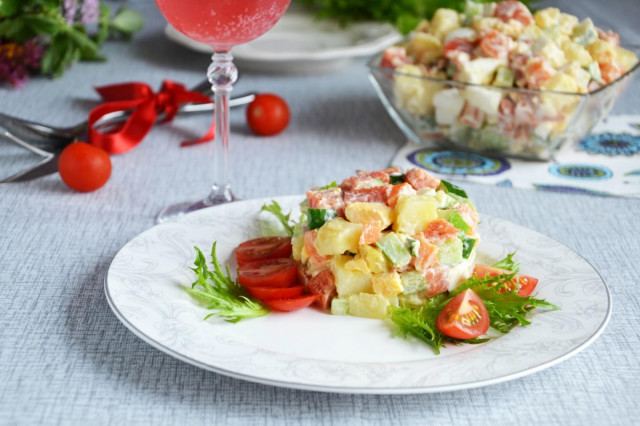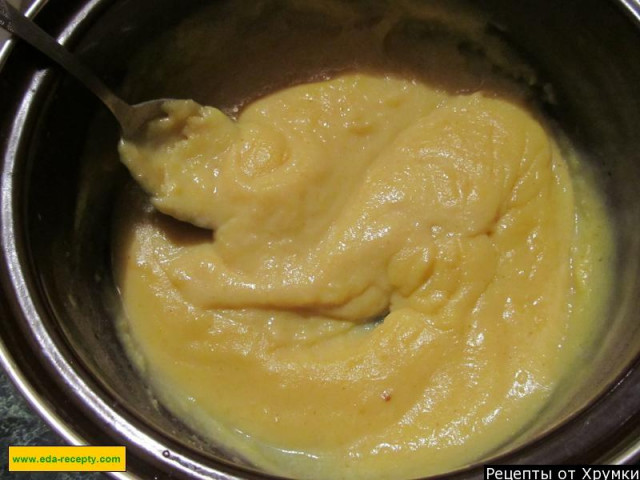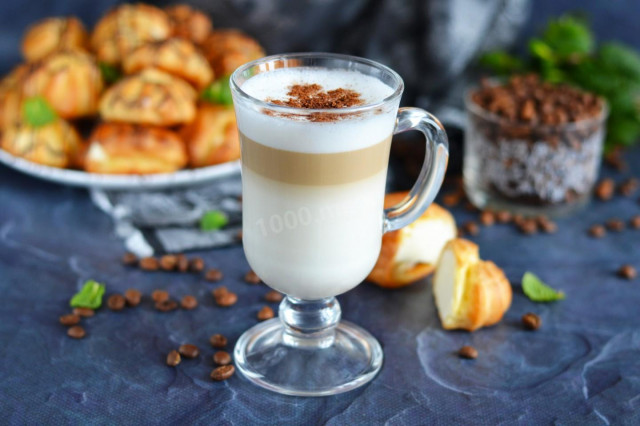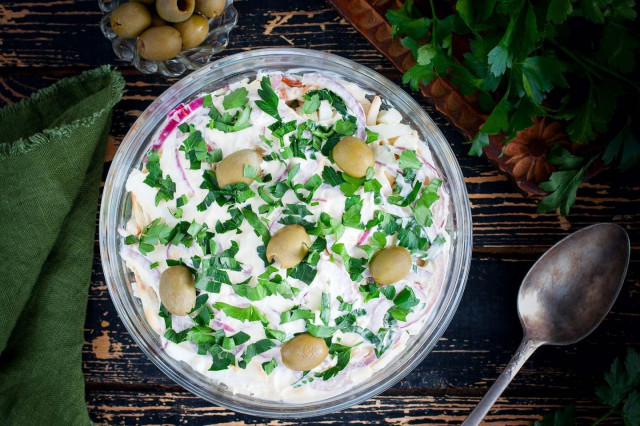Composition / ingredients
Step-by-step cooking
Step 1:

How to cook classic cabbage soup with sauerkraut? The recipe is very simple. Prepare all the necessary ingredients according to the list and start with the preparation of broth. You can take beef or veal. To make the broth more rich, take meat with a bone. It can be a shank, a shoulder blade on a bone. I have beef ribs, but there is a lot of meat on them. If you find such (after all, meat is sometimes specially cut from the ribs), then you can do with them.
Step 2:
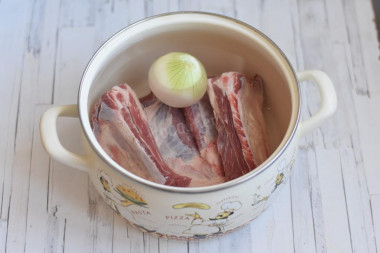
Wash and dry the meat. Put in a saucepan together with a whole peeled onion, pour cold water.
Step 3:
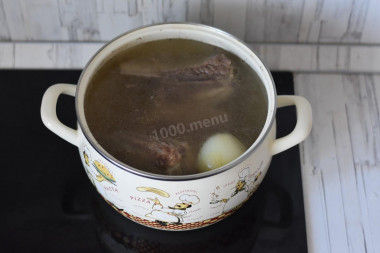
Bring the broth to a boil and cook for about 1.5-2 hours at a low boil, removing the foam. At first, the broth will be dark, but it will gradually lighten.
Step 4:
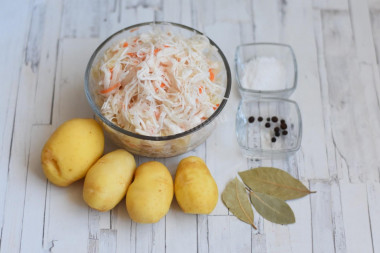
While the meat is cooking, prepare the base for the soup.
Step 5:
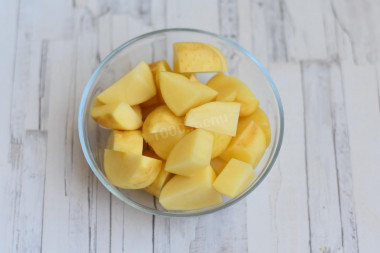
Peel the potatoes and cut into medium cubes. It will turn out delicious with new potatoes.
Step 6:
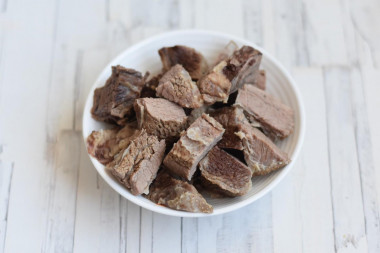
When the meat is cooked, remove it from the broth, separate it from the bones and cut into medium pieces or cubes.
Step 7:

Also take out the onion and throw it away - she gave all the juices to the broth and made it more transparent. Strain the broth and return to a slow fire.
Step 8:
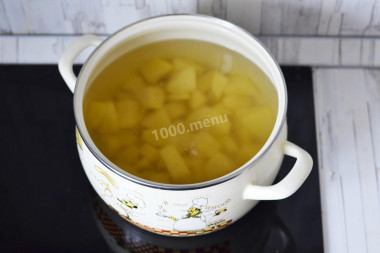
Return the meat to the pot with the broth. Next, lay out the potatoes. Add salt, pepper and cook all together for 5 minutes.
Step 9:
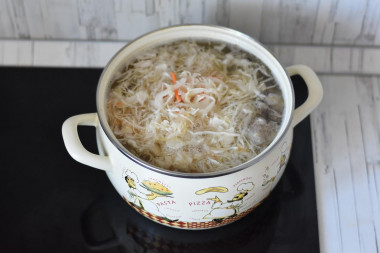
Then add the sauerkraut and cook all together for about 15 minutes, stirring occasionally. Sauerkraut can be squeezed out before adding or put together with brine - as you like. For me, it tastes better with brine.
Step 10:
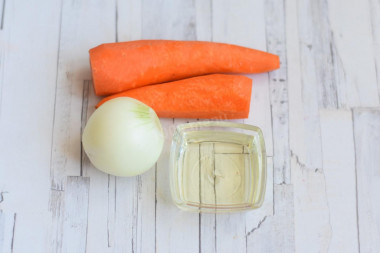
Prepare the roast. You can use any vegetable oil, but it is better with sunflower.
Step 11:
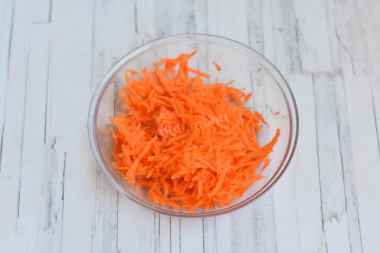
Peel the carrots and grate them on a coarse grater.
Step 12:
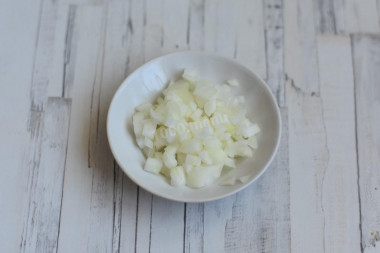
Also peel and cut the onion into small cubes. If you or your children do not like onions, then you can not add it to the roast at all, so that it does not crunch on your teeth. But still, onions contain important substances for the body, so I usually add a whole onion to the broth to throw it out later, and I do the frying without onions.
Step 13:
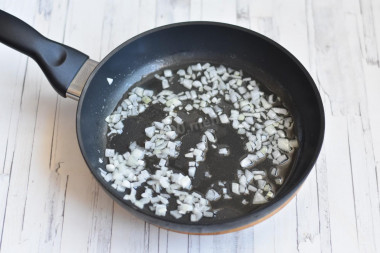
Heat vegetable oil in a frying pan over medium heat and fry the onion for 1-2 minutes.
Step 14:
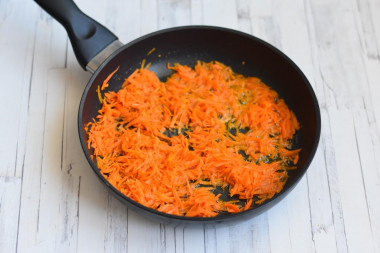
Then add the carrots and fry, stirring, until soft for another 3-5 minutes.
Step 15:
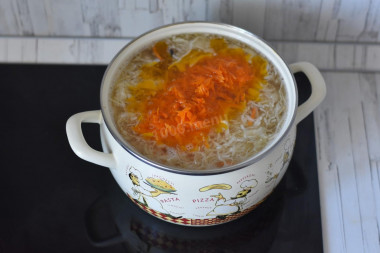
Put the roast in a saucepan with soup and cook everything together for 5-7 minutes.
Step 16:
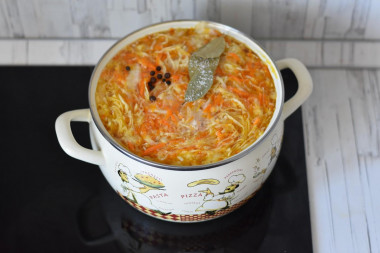
At the end, add both types of pepper, bay leaves. Cook the soup at a low boil for 10 minutes.
Step 17:
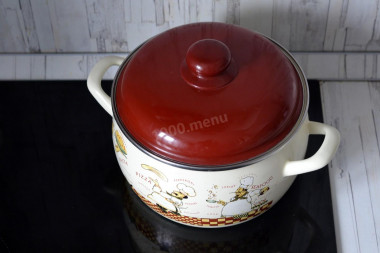
Remove the ready soup from the heat, cover the pan with a lid and let the soup brew for 10-15 minutes. Then pour on plates. you can serve it with sour cream. Bon appetit!
Important! Regardless of whether the amount of water for soup is indicated in the recipe or not, it is best to focus on your own preferences (thick or more liquid soup you like), as well as on the size of your pan and the products taken for cooking. Do not forget that the author has his own view on the amount of meat, potatoes, cereals and other ingredients in the soup, which may not coincide with yours. In practice, this means that if you are cooking for the first time, you should not cook a whole pot at once. Make a soup for tasting - for one or two people. To do this, reduce the amount of all ingredients according to the recipe to 1-2 servings, and take the amount of water from the calculation: from one cup per serving - if the soup is very thick, to 1.5-2 cups - if more liquid. Do not forget to take into account that part of the liquid will boil off during the cooking process. After tasting a small portion of soup, you can adjust both the amount of liquid and the proportions of ingredients to your taste. In the future, like most experienced housewives, you will be able to pour water for soup and lay the ingredients “by eye".
Beef can be replaced with any other type of meat that you like best. But keep in mind that the cooking time, as well as the taste and calorie content of the dish will change. Pork and lamb tend to be fatter than beef, and chicken fillet or turkey are leaner. At the same time, the cooking time depends not only on the type of meat, but also on which part of the carcass is used and how old or young the meat is.
Caloric content of the products possible in the composition of the dish
- Onion - 41 kcal/100g
- Ripe potatoes - 80 kcal/100g
- Baked potatoes - 70 kcal/100g
- Mashed potatoes - 380 kcal/100g
- Boiled potatoes - 82 kcal/100g
- Potatoes in uniform - 74 kcal/100g
- Fried potatoes - 192 kcal/100g
- Melted beef fat - 871 kcal/100g
- Fat beef - 171 kcal/100g
- Lean beef - 158 kcal/100g
- Beef brisket - 217 kcal/100g
- Beef - okovalok - 380 kcal/100g
- Beef - lean roast - 200 kcal/100g
- Beef shoulder - 137 kcal/100g
- Beef - ribs - 233 kcal/100g
- Beef - ham - 104 kcal/100g
- Beef - tail - 184 kcal/100g
- Boiled ham - 269 kcal/100g
- Beef corned beef - 216 kcal/100g
- Carrots - 33 kcal/100g
- Dried carrots - 275 kcal/100g
- Boiled carrots - 25 kcal/100g
- Bay leaf - 313 kcal/100g
- Black pepper peas - 255 kcal/100g
- Sauerkraut - 19 kcal/100g
- Salt - 0 kcal/100g
- Water - 0 kcal/100g
- Sunflower oil - 898 kcal/100g
- Refined sunflower oil - 899 kcal/100g
- Allspice - 263 kcal/100g

